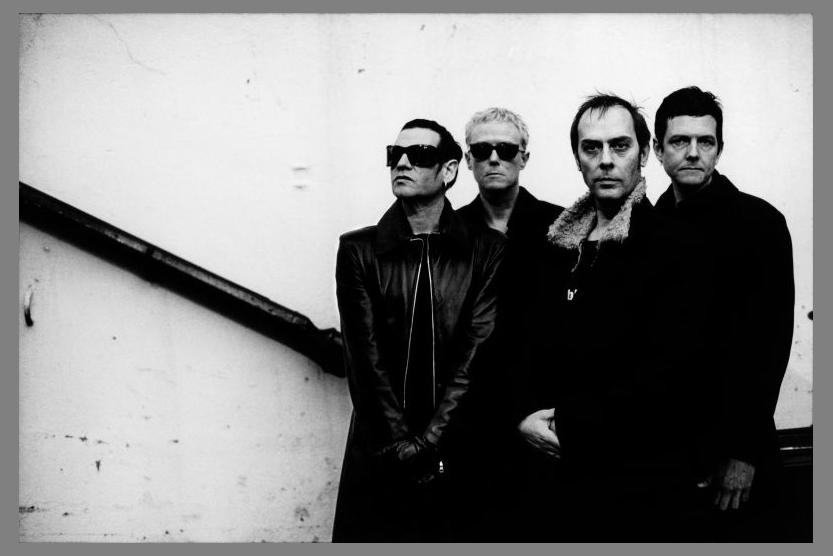 Bauhaus
Bauhaus
Bauhaus: The Gothic Pioneers of Post-Punk
In the enigmatic realm of post-punk, Bauhaus emerged as a visionary force, their haunting melodies and macabre aesthetics casting an indelible mark on the music scene. Led by Peter Murphy's charismatic vocals and the masterful guitar wizardry of Daniel Ash, Bauhaus defied convention with their ethereal yet unsettling soundscape.
Formation and Early Challenges
Formed in 1978 in Northampton, England, Bauhaus grappled with adversity from the outset. Their unconventional style, inspired by horror films, Gothic literature, and the avant-garde, alienated some listeners and critics. However, their unwavering determination and a loyal fan base propelled them forward.
Controversies and Acclaim
Bauhaus's lyrics, often imbued with themes of death, darkness, and the supernatural, drew both controversy and acclaim. Their song "Bela Lugosi's Dead," an homage to the legendary horror icon, became an instant classic. Yet, their provocative stage performances and exploration of taboo subjects also sparked moral outrage from conservative circles.
Discography
Over their relatively brief but influential career, Bauhaus released a string of albums that cemented their status as musical innovators. Their debut, "In the Flat Field" (1980), showcased their atmospheric and brooding sound. "Mask" (1981) further refined their aesthetic, while "The Sky's Gone Out" (1982) explored more experimental territory.
Members
* Peter Murphy: Lead vocals, whose distinctive voice ranged from ethereal whispers to haunting wails.
* Daniel Ash: Guitar, keyboards, and saxophone, known for his intricate and atmospheric playing.
* Kevin Haskins: Drums, providing a solid rhythmic foundation for the band's ethereal soundscapes.
* David J: Bass guitar, contributing atmospheric textures and occasional vocals.
Legacy
Bauhaus disbanded in 1983, but their influence continues to reverberate through generations of musicians. Their fusion of post-punk, Gothic rock, and avant-garde elements laid the groundwork for countless bands that followed. Today, Bauhaus remains an iconic force in the world of music, their haunting melodies and evocative lyrics forever etched into the annals of post-punk history.
In the enigmatic realm of post-punk, Bauhaus emerged as a visionary force, their haunting melodies and macabre aesthetics casting an indelible mark on the music scene. Led by Peter Murphy's charismatic vocals and the masterful guitar wizardry of Daniel Ash, Bauhaus defied convention with their ethereal yet unsettling soundscape.
Formation and Early Challenges
Formed in 1978 in Northampton, England, Bauhaus grappled with adversity from the outset. Their unconventional style, inspired by horror films, Gothic literature, and the avant-garde, alienated some listeners and critics. However, their unwavering determination and a loyal fan base propelled them forward.
Controversies and Acclaim
Bauhaus's lyrics, often imbued with themes of death, darkness, and the supernatural, drew both controversy and acclaim. Their song "Bela Lugosi's Dead," an homage to the legendary horror icon, became an instant classic. Yet, their provocative stage performances and exploration of taboo subjects also sparked moral outrage from conservative circles.
Discography
Over their relatively brief but influential career, Bauhaus released a string of albums that cemented their status as musical innovators. Their debut, "In the Flat Field" (1980), showcased their atmospheric and brooding sound. "Mask" (1981) further refined their aesthetic, while "The Sky's Gone Out" (1982) explored more experimental territory.
Members
* Peter Murphy: Lead vocals, whose distinctive voice ranged from ethereal whispers to haunting wails.
* Daniel Ash: Guitar, keyboards, and saxophone, known for his intricate and atmospheric playing.
* Kevin Haskins: Drums, providing a solid rhythmic foundation for the band's ethereal soundscapes.
* David J: Bass guitar, contributing atmospheric textures and occasional vocals.
Legacy
Bauhaus disbanded in 1983, but their influence continues to reverberate through generations of musicians. Their fusion of post-punk, Gothic rock, and avant-garde elements laid the groundwork for countless bands that followed. Today, Bauhaus remains an iconic force in the world of music, their haunting melodies and evocative lyrics forever etched into the annals of post-punk history.